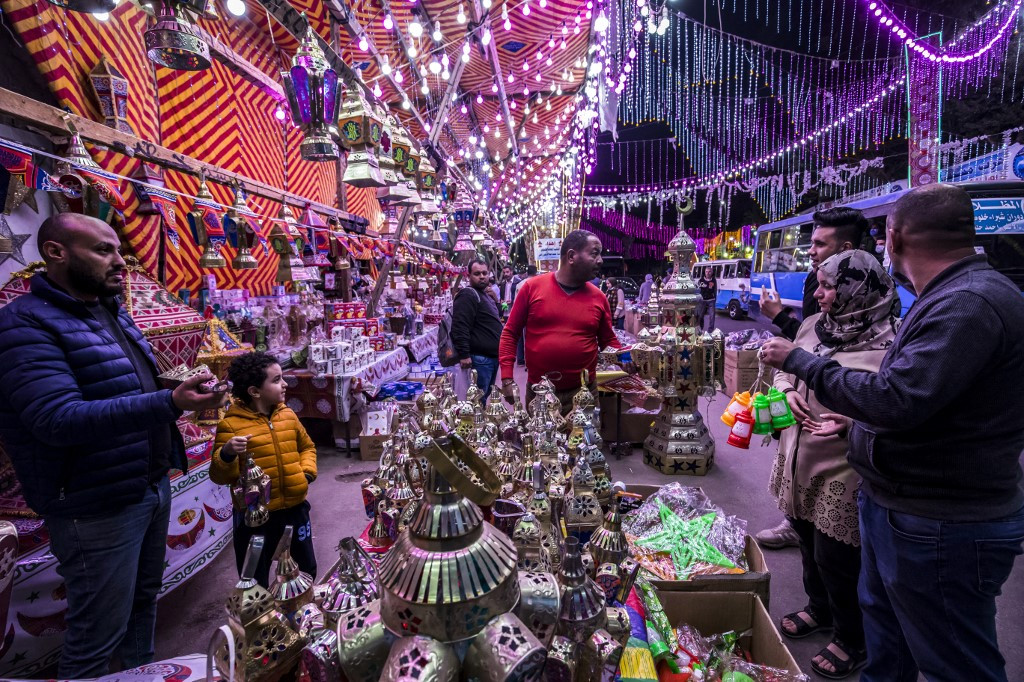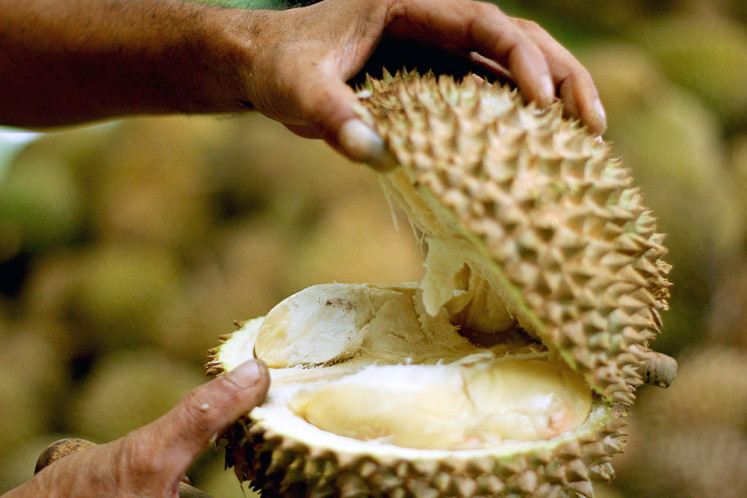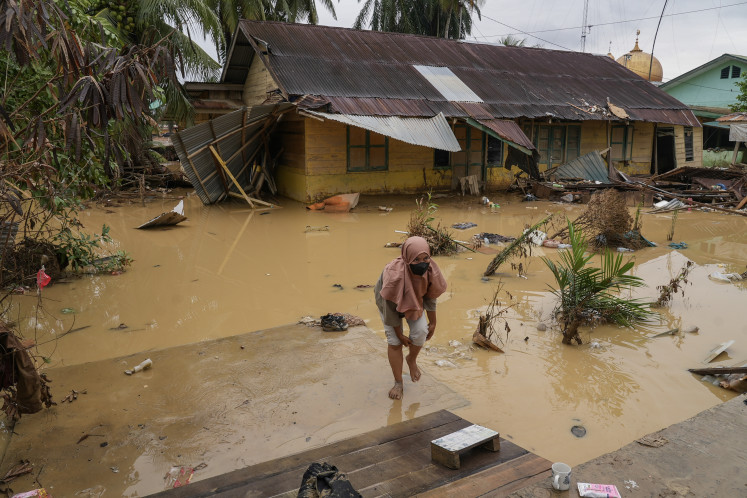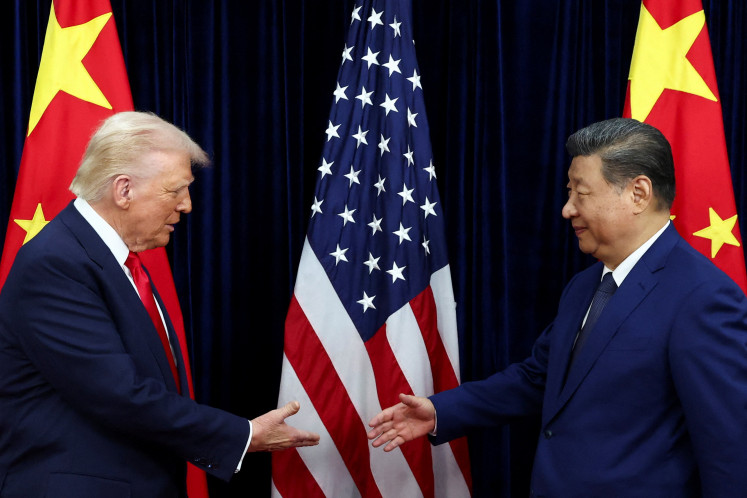Popular Reads
Top Results
Can't find what you're looking for?
View all search resultsPopular Reads
Top Results
Can't find what you're looking for?
View all search resultsEgypt and Indonesia: Long partnership and common aspirations
The spread of the pandemic is a new challenge, and Egypt and Indonesia may share the same views on the questions of vaccine accessibility global supply.
Change text size
Gift Premium Articles
to Anyone
O
n Friday, Egypt celebrates the 69th anniversary of the 1952 revolution, which ended the monarchy and created a republic in the country. It was an event that not only contributed to the escalation of the decolonization of the Arab world and Africa but also caused profound, political, economic and social changes in Egypt.
The Sustainable Development Strategy of Egypt, “Vision 2030”, represents a foothold on the way to inclusive and sustainable development. Serious reforms continue to change and enhance the economy. Gross domestic product (GDP) growth reached 3.8 percent in 2020, despite the various negative effects of the pandemic, and it is forecasted to reach 5.8 percent this year. Growth is driven by the diversification of the economy, enhancing its competitiveness and increasing foreign investment, in addition to an approach of dealing deeply with infrastructure problems to achieve comprehensive solutions.
Mega projects in the renewable energy sector helped Egypt transform its energy deficit from 2014 into an energy surplus. Electrical interconnection projects to build and reinforce networks between Egypt and many of its neighbors in the Middle East and other partners are underway. Egypt is working toward the goal of becoming a regional hub for the production and export of electricity.
New gas discoveries in the Mediterranean have allowed Egypt to fulfill its internal needs and resume gas exports. A new administrative capital is being constructed and is ready to begin operation gradually from 2021 to 2023. Another 15 new cities are under construction, mega water desalination projects are being built, in addition to upgrading ports and transport networks, as well as modernizing government services. Similarly, remarkable upgrades have been made to other sectors, including petrochemicals, fisheries, fertilizers, engineering industries, textiles, food industries, construction materials and agriculture.
Tremendous efforts have been successful over the last decades in both Egypt and Indonesia at enhancing economic competitiveness, modernizing infrastructure, promoting investment and providing more job opportunities to improve the living condition of citizens and achieve SDGs.
As Egypt and Indonesia commemorate 75 years of diplomatic relations, the two countries continue to work together toward more strategic partnerships, developing bilateral cooperation for mutual benefit and a better future.
Since the early days of the countries’ independence, the international scene has evolved, unleashing new economic and political challenges. The main principles that the two countries have long shared are still valid. Both countries are actively engaged in promoting regional peace and stability, enhancing regional economic cooperation and achieving sustainable development goals. These remain the engine of their relations and their agreement on several international issues. And today, issues such as human rights, women’s empowerment, climate change, combating terrorism and surpassing the COVID-19 pandemic are among the countries’ common interests.
The spread of the pandemic is a new challenge, and Egypt and Indonesia may share the same views on the questions of vaccine accessibility global supply. Both countries are also aiming to produce vaccines locally to help secure their needs.
Much has been achieved by both countries in the fields of public health, education, human rights, energy, agriculture, industry and transportation. Many ambitious plans for developing services, renewable energy, protecting the environment – as well as new areas such as digital economy, financial inclusion and creative economy – offer several opportunities for more cooperation.
There are different and nontraditional patterns of economic cooperation that can be considered for the benefit of the two countries. Therefore, important steps have been taken to update and diversify legal bilateral framework agreements to give more room to expand cooperation and raise it to higher levels. Challenges and aspirations are much alike.
Trade and mutual investments between the two countries are eligible for significant growth as common promoting efforts continue despite the pandemic. This year, we are witnessing a new addition to Egyptian investments in Indonesia in the field of electricity.
It is expected that all steps taken in both countries to continuously promote investment will increasingly pay off. Moreover, Egypt and Indonesia are expanding their production base, which encourages increased and diversified trade opportunities.
The two countries are also eager in their promotion of peace, solidarity and moderation.
During the past decades the cultural component in bilateral relations have been characterized by a strong and long-lasting relationship between Al-Azhar University in Egypt and the Ministry of Religious Affairs and several religious institutions in Indonesia. Al-Azhar offers annual full scholarships and receives a significant amount of self-financed Indonesian students. In the past ten years, about 100,000 Indonesian students were graduated from Al-Azhar, which makes Indonesians the largest nationality of students studying at Al-Azhar. The newly inaugurated Al-Azhar center of Arabic language studies in 2019 is playing important role in helping young Indonesians to learn Arabic language and enlarge their scope of studies.
These old ties are well remarked by a special arcade in the main nave of the mosque called "Jawi", referring to Indonesia's Java Island, as a cultural symbolism of the long historic presence of Indonesian students in Al-Azhar mosque. This people to people exchange is a valuable cultural aspect in the friendly and amicable relations that characterize relations between Egypt and Indonesia.
I am quite confident that both countries are willing to closely work for better economic and cultural ties.
***
The writer is ambassador of the Arab Republic of Egypt to Indonesia.










